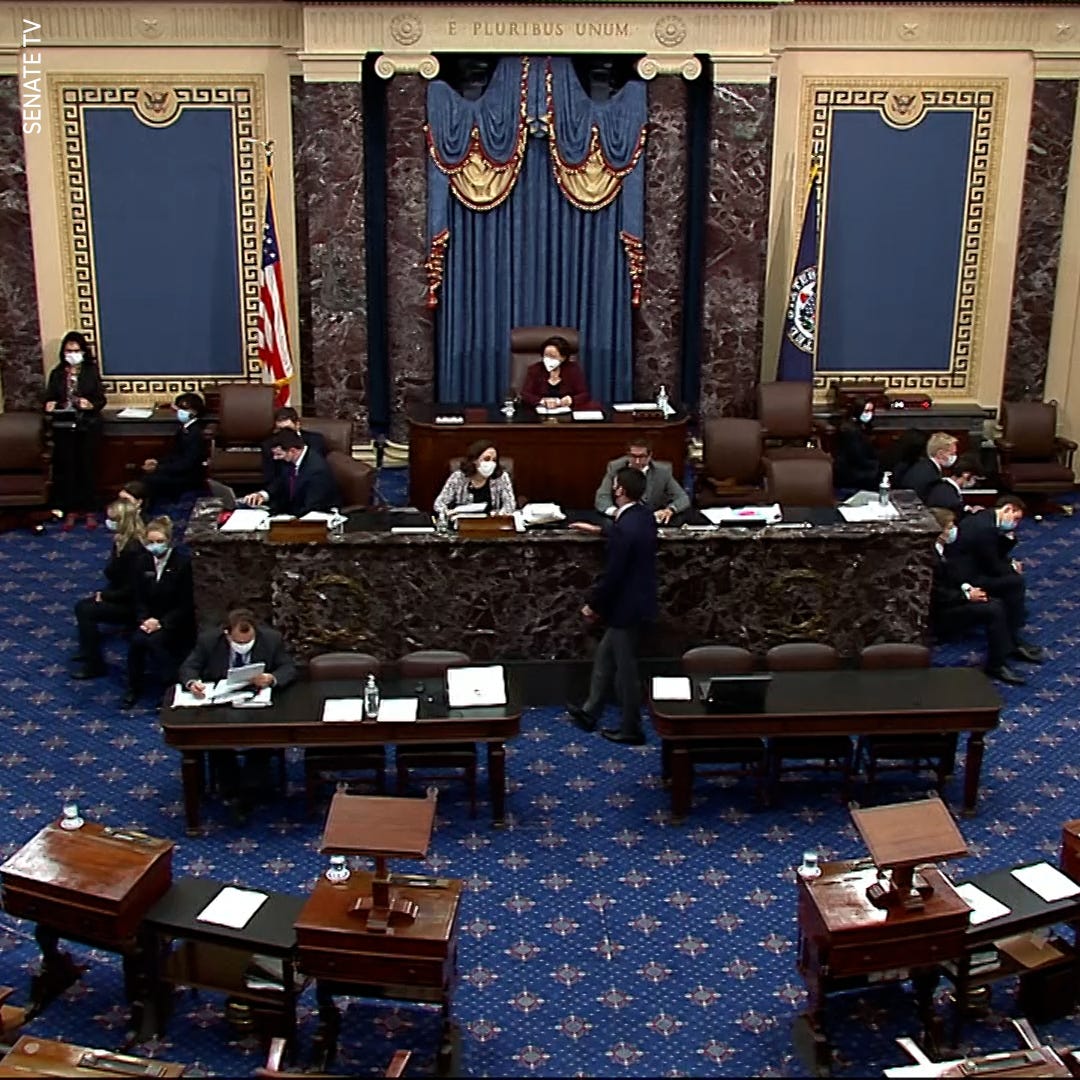Restrooms should be off limits: Why political protests from all sides are out of control
The politics of intimidation – to the point of violence – has become all too common.

President Lyndon Johnson was known to conduct staffing meetings while on the toilet, making Cabinet members and sometimes Vice President Hubert Humphrey stand awkwardly outside the bathroom while he shouted ideas.
Channeling Johnson's crudeness, left-wing activists cornered Arizona Sen. Kyrsten Sinema, a moderate Democrat, inside a public restroom Sunday at Arizona State University, and, in a sign of our performative social media age, recorded their antics and posted the video online.
Sinema's sin? She has refused, so far, to go along with the $3.5 trillion price tag of President Joe Biden’s Build Back Better proposal.
Even more disturbing than the activists' actions are the political leaders, including the president, who downplayed the harassment that Sinema endured.
Unfortunately, the politics of intimidation – to the point of violence – has become all too common.
Opinions in your inbox: Get a digest of our takes on current events every morning
In 2017, a neighbor assaulted Rand Paul while the Republican senator was mowing his lawn at his home in Kentucky. Last year, an angry mob threatened Paul and his wife leaving the White House after watching the Republican National Convention.
In January, angry Trump supporters heckled Mitt Romney in an airport in Utah and later during a flight because the senator didn’t support the now former president’s baseless claims of a stolen election.
Later that day, Trump supporters, egged on by the president, violently stormed the Capitol and attempted to stop the certification of the electoral votes.
And last month in Florida, a crowd showed up outside Brevard County School Board member Jennifer Jenkins' home to protest the board's decision to require masks in schools. Jenkins said the protesters cursed and argued with her neighbors.
Robust protest is a hallmark of the American experiment, but we need leaders courageous enough to tell their own side to stand down. When leaders encourage this kind of behavior or offer only faint criticism, it gives permission to the most unhinged in every movement to resort to even more extreme actions.
Such actions also are counterproductive because they tend to strengthen opponents' resolve against what the out-of-control activists are pushing. I doubt anyone is convinced when someone disrupts their dinner, and I’m confident no senator will change their vote after being heckled in the bathroom.
Lasting change requires confidence, courage
Making arguments, building coalitions and the patience to make our case require confidence and courage. Performative acts of faux toughness make for viral social media moments, but lasting change happens through the long, slow, patient work of those willing to persuade and protest, to cajole and convince, to inch forward. It recognizes that politics is the art of the possible.
We are at this place, where many don’t see a problem with crossing the line, for two reasons. First, we have a trust deficit at all levels of American society. Our institutions and leaders have failed us at almost every turn: government, business, media, even church.
Second, we’ve replaced religious fervor with political fervor, filling that spiritual void with nonstop partisanship, as politicians and issues become avatars for our own happiness and sources of joy.
Keep politics in perspective
Ultimately, politics, while a useful vehicle to shape society in a democracy, is a poor substitute for transcendent faith. As an evangelical Christian, this is where I tell you that there is a Savior, but that he doesn’t live in Washington, D.C.
The Christian faith teaches that civility doesn’t have to compete with courage. The Gospel frees us to advocate effectively on behalf of the vulnerable, and yet guards us against using our issues as a cudgel to defeat our ideological foes.
That is how Christian activists like the Rev. Martin Luther King Jr. and William Wilberforce could preach nonviolence and yet remained unmoved in working toward social change. They were willing to see the image of God not only in the vulnerable for whom they fought, but also in the people they opposed.
In a diverse country like ours, we will have to learn how to advocate fiercely for what we believe and live peacefully alongside people who don’t see things the way we do.
That means respecting the dignity of those across the aisle. Following senators into the bathroom might make for good online content, but will ultimately serve in flushing the animating ideas down the toilet.
Dan Darling is an author and pastor. His books include "A Way with Words: Using Our Online Conversations for Good." Follow him on Twitter: @dandarling